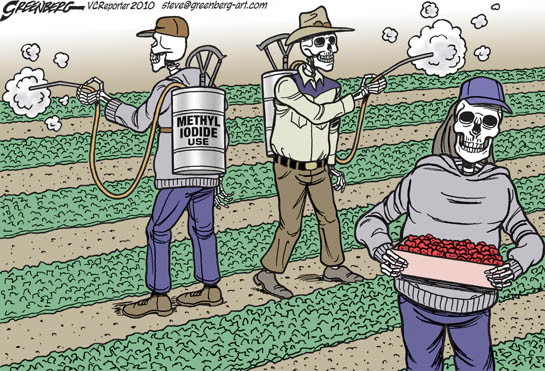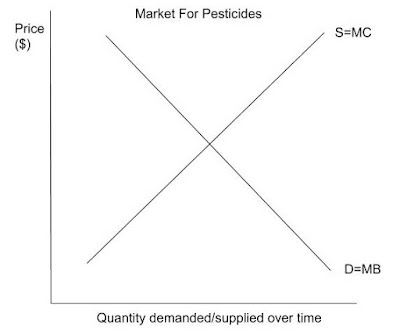1-The Issue of Synthetic Pesticide Use
- The use of dangerous pesticides for agricultural purposes is an issue at large. 5.6 billion pounds of synthetic pesticides are used worldwide.
- Some widely used synthetic pesticides are possible carcinogens, with other severe effects towards children.
- Many pesticides have been linked to the honeybee crisis, decreasing bat populations, and mass extinctions.
- The Pest Management Regulatory Agency (PMRA) should put in place policies that ban or restrict pesticides proven to have severe impacts to human health and the environment.
What is the issue?
Pesticides are substances that destroy pests and insects. They are sprayed onto crops to prevent pest infestation and promote quality and yield of the crop. After all, consumers would prefer a bright shiny tomato rather than one bitten by insects. Modern synthetic pesticides are cheap and easily accessible, resulting in their widespread use throughout the agricultural industry. In Canada, synthetic pesticides are overapplied, resulting in run-off. Water can carry these harsh chemicals into the environment, where its toxic properties kill millions of animals and disrupt ecosystems. There have also been pesticide residues found on vegetables and fruits.One of the most notable effects is its toll on human health.
- Children exposed to pesticides (ex. accidental ingestion) are twice as likely to develop ADHD compared to those who were not exposed to them. Pesticides severely affect the development of the central nervous system of children under 12 years of age.
- Women exposed to pesticides during pregnancy are six times as likely to have a child with autism compared to a women who were not exposed to them.
- Farmers exposed to pesticides regularly had higher rates of cancer, like leukemia, compared to the rest of the population.
- Contact with pesticides may cause eye damage, severe nausea, and fatal systemic poisoning.
Children are particularly susceptible to these ill effects. They are exposed to pesticides applied on lawns, playgrounds, and foods.
Besides human health, pesticides have many environmental impacts.
- Neonicotinoids, a type of pesticide, is extremely toxic to the bee population, who are responsible for pollination of 1/3 of the world's crops
- Pesticides contribute to the spread of the "white-nose syndrome," responsible for the deaths of 6.7 million bats since 2006.
- Pesticides leach into the soil, reducing concentrations of essential plant nutrients like phosphorus and nitrogen. It kills beneficial insects that promote soil quality.
Neonicotinoids are banned in France, Italy, and Germany. The European Food Safety Authority (EFSA) concluded that the chemical is directly linked to the honeybee crisis.
Citations



